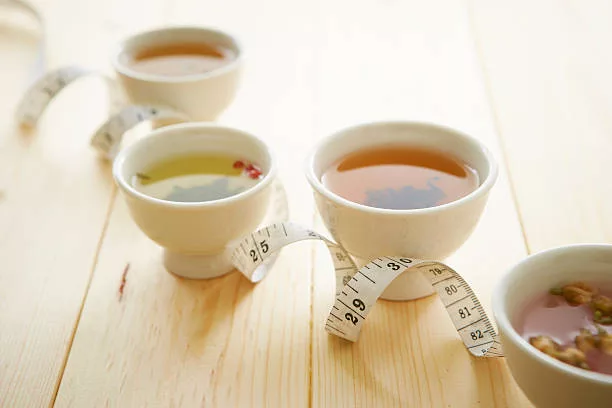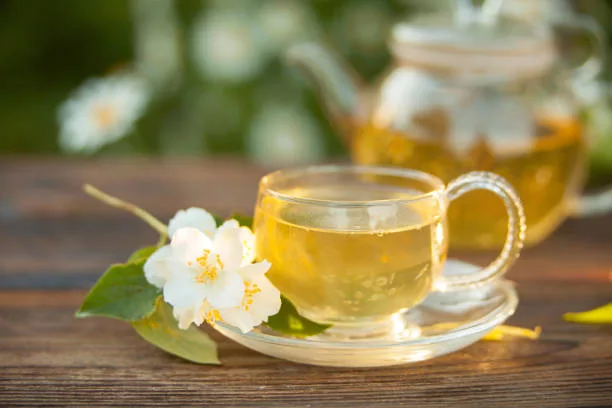Which Type of Tea is Best For Weight Loss?
Studies suggest that tea may aid weight loss, although Churnetski warns that for sustainable results it should be combined with healthy eating and regular physical activity.
Tea is produced from Camellia sinensis plant, but each variety offers different health benefits, with green and white tea having more research supporting their weight-loss properties than others.
Green Tea
Green tea is considered to be one of the healthiest varieties on the market, boasting low caloric counts and antioxidants to promote weight loss and lower heart disease risks. Drinking green tea also aids digestion and metabolism – so adding it to your diet along with exercise and healthy nutrition may help you reach your weight loss goals more quickly!

Green tea primarily contains water and plant compounds known as catechins. Catechins are powerful antioxidants that protect against free radicals that damage cells and contribute to disease. One study revealed that drinking green tea could speed up metabolism by encouraging fat release from adipose tissue; when fat is oxidized into energy by our bodies it becomes much easier to use it as fuel for energy generation.
Studies have also demonstrated that green tea can boost fat burning and metabolic rates when combined with exercise, aiding weight loss. Furthermore, studies have also shown it to prevent high blood pressure which is one of the major contributors to stroke and heart disease; by decreasing plaque build-up in arteries and increasing circulation.
Green tea may help prevent diabetes by lowering blood glucose and insulin levels. Furthermore, it may provide protection from Parkinson’s and Alzheimer’s diseases.
Enjoy this type of tea either hot or cold, but make sure that it is properly prepared. Overheating or leaving too long will diminish its beneficial properties; spring water or pure tap water offers optimal brewing results to maximize flavor while getting maximum benefit out of each leaf.
Green tea can be enjoyed either alone or as part of a meal, but be wary when adding additional sugar – too much can thwart weight loss efforts! According to the American Heart Association’s recommendations, women should limit themselves to no more than six teaspoons and nine teaspoons daily of added sugar in their beverages.
Oolong Tea
Oolong Tea may not be as well-known as green or black teas, but it packs quite the same punch in terms of flavor and health benefits. Produced using semi-fermentation method between black tea and green tea processing processes, Oolong has higher antioxidant and antimutagenic properties than both green and black tea varieties.
Reason being, tea leaves exposed to air during brewing become subjected to an oxidation process which causes them to go from their original fresh and green state into brown-hued shades over time, giving different varieties their distinctive tastes and aromas.
Oolong tea contains high levels of polyphenols, such as epigallo catechins, which have been proven to boost metabolism and facilitate fat burning. When coupled with healthy diet and exercise regimen, oolong tea can become an invaluable aid for weight loss.
Oolong tea also helps lower blood sugar and insulin resistance, which are risk factors for diabetes and other health conditions. A recent study concluded that people who regularly consumed oolong tea had lower blood glucose and cholesterol levels compared with those who don’t drink any oolong tea.
Just like its counterpart green tea, oolong tea can also help promote fat breakdown and increase energy expenditure, as well as block the absorption of fats and carbohydrates – helping with weight loss by decreasing how many calories enter through these sources.
Oolong tea may seem too good to be true, but studies show it can actually aid weight loss and maintenance. Studies have demonstrated that people who regularly drink oolong tea have lower BMIs and waist circumferences compared to those who don’t drink any tea at all, with polyphenols from its constituent leaves helping reduce fat accumulation by activating enzymes that release stored fatty acids back into your bloodstream for energy use. It is best to enjoy oolong in moderation paired with healthy eating practices and regular physical exercise for maximum success!
White Tea
White tea may just be as effective in aiding weight loss. Produced from buds and leaves of Camellia sinensis plants, white tea is made up of the least processed type of tea to retain all the antioxidants known to provide health benefits.
White tea’s biggest advantage lies in its small caffeine content, making it the ideal beverage if you are sensitive to caffeine or simply want a less caffeinated alternative to coffee. Indeed, some studies indicate that drinking white tea during exercise could even boost fat burning!
White tea contains polyphenols known as catechins that act as antioxidants in the body and protect cells against free radical damage caused by free radicals that cause various health conditions. Catechins are especially helpful at lowering heart disease risk by helping reduce LDL cholesterol, blood triglycerides, and improving overall artery and blood vessel function.

Researchers conducted a small study that revealed those who regularly consumed three or more cups of white tea had a 21 percent reduced risk of heart disease, likely because its polyphenols can relax blood vessels and boost immunity.
White tea can also play an integral part in maintaining good dental health by providing essential fluoride for tooth enamel strength and preventing decay. Furthermore, its antibacterial, antiviral and anti-inflammatory properties make it just as valuable.
Studies indicate that white tea may also have anticancer benefits, partially as a result of its antioxidants that protect cells against free radical damage. One catechin known as EGCG has even been proven to kill cancer cells.
Still much is unknown about the health benefits of white tea, yet its proven track record for helping with weight loss is strong. Not to mention its delicious flavor–making it worth including in your lineup of healthy beverages!
Pu-erh
Pu-erh tea, named for Pu-erh County in Yunnan Province, is produced by fermenting unoxidized green tea leaves over time – often years – until fermentation occurs and leaves are harvested. Due to their taste and health benefits, Chinese people greatly prize aged pu-erh teas as treasured beverages.
Studies indicate that Green Tea may help combat obesity, reduce blood cholesterol levels, and enhance heart health. These effects are due to its natural high concentration of polyphenols such as EGCG (epicatechin gallate), an effective antioxidant capable of protecting against free radical damage while helping ward off cardiovascular diseases.
One more reason this tea can help with weight loss is its ability to improve digestion and eliminate harmful bacteria in your gut, enabling your body to absorb all the necessary nutrients from food more easily and remain healthy.
Tea can also provide great bone protection due to its rich calcium content; calcium plays an integral part in maintaining bone density and strength as we age, thus decreasing risk for serious conditions like osteoporosis which are difficult to treat.
Tea can also help promote regular bowel movements, helping remove waste and excess fat from your body. Too much fat build-up in arteries is potentially dangerous to health; excess can build-up into heart disease.
Pu-erh tea offers many health benefits, yet isn’t without risks. The fermentation process may cause mycotoxins – toxic substances produced by certain fungi – to form; however, levels in pu-erh tea tend to fall below what can be considered harmful and have not resulted in anyone falling ill from drinking this tea.


